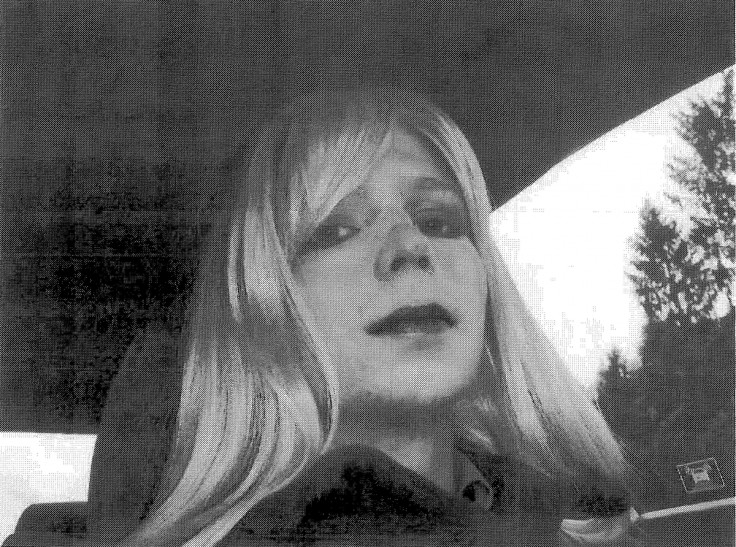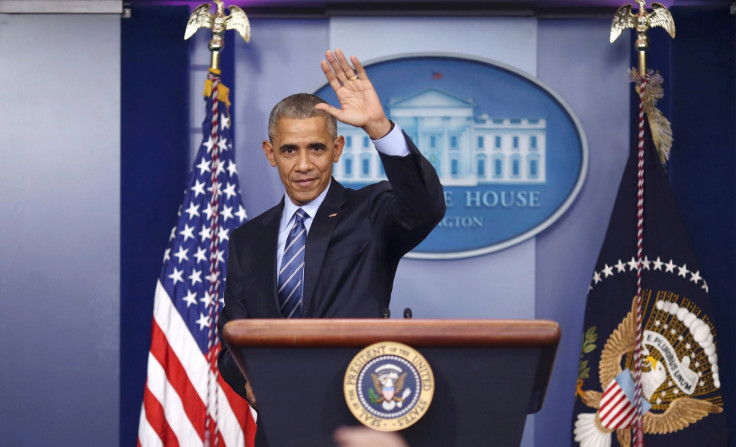Chelsea Manning betrayed the US and endangered innocent lives – she is no hero
By celebrating Manning's actions, LGBT activists give credence to those that call them traitors.

It might have been thought that a consistent opposition to treason was not all that difficult. But President Barack Obama's surprise decision last night to commute the sentence of Bradley, now Chelsea, Manning, showed how deeply political partisanship has penetrated into areas like national security, where ideally country would be put before party or ideology.
Manning began stealing US diplomatic cables in December 2009 and established contact with Julian Assange's WikiLeaks the next month. Having never alleged a wrongdoing nor tried to pursue it up the chain of command – as a whistle-blower would – Manning provided classified information to WikiLeaks that was first made public in February 2010. The leak that caught attention came on 5 April 2010, when WikiLeaks released a video under the title, "Collateral Murder," of an air attack by the US in Iraq in July 2007, which killed, among others, Reuters journalists Saeed Chmagh and Namir Noor-Eldeen.
Manning was arrested in late May 2010, having already handed over 91,000 classified documents from Afghanistan and nearly 400,000 from Iraq, which were released by WikiLeaks in July and October, respectively. Again, whistle-blowers try to limit the scope of what they leak to make the point they feel they need to; Manning dumped years' worth of data without ever having read it.
"I could've sold to Russia or China, and made [a lot of money]," Manning said in a webchat with Adrian Lamo, the hacker who would turn him in. But, said Manning, he believed it was "public data" that "belongs in the public domain" and did not want to transfer the data to "some slimy intelligence collector". Perhaps Manning didn't know Russian and Chinese intelligence have the internet as well.
China made ample use of the WikiLeaks cables to incite a witch-hunt against every academic and human rights activist named in the cables – and of course many who were not – for passing information to Washington. This applied especially to Tibetans and Muslim Uyghurs. Many other authoritarian governments found the cables useful.
Two Zimbabwean generals who had met with US diplomats and criticised senior officials in Robert Mugabe's police state were court-martialled, and an investigation was started into the "treasonous collusion" of Zimbabwe's lead oppositionist, Morgan Tsvangirai, with an "aggressive international world, particularly the United States". A journalist in Ethiopia, Argaw Ashine, was forced to flee his country after Manning revealed he had been discussing with the U.S. ways to avert a planned crackdown on the Ethiopian press. Syria's beleaguered human rights activists could have done without one more excuse to dismiss them as hirelings of the Americans. Beyond states, Osama bin Laden had "asked for and received" copies of the so-called Afghan War Logs.
When asked about the danger his revelations had put these people and more in, Assange replied, "Well, they're informants. So, if they get killed, they've got it coming to them. They deserve it." Assange had never been shy about his anti-Americanism, and already by this stage it was quite evident that – whatever WikiLeaks had been when it first started in 2006 – by 2010-11 it was not the transparency organisation it billed itself as.
The Moscow handler for WikiLeaks was Israel Shamir, an antisemite and all-round crank with half-a-dozen different aliases. (Assange might have found some common ground with Shamir, given his belief that all of his enemies are "sort of Jewish".) Shamir has strong links to Russian intelligence and personally handed stolen cables to Belarus's dictator to help him root out dissidents.
It is difficult to escape the suspicion that the decision itself is rooted in politics, specifically identity politics, which has become such a salient part of the landscape in the Obama years.
By the end of 2010, it had come to light that Assange was wanted in Sweden on charges of sexual assault, not that this stopped Assange being given a show on RT (formerly Russia Today), the Kremlin's English-language propaganda channel. Assange's first guest was Hassan Nasrallah, the leader of Hezbollah, an Iranian proxy and global terrorist organization.
Fleeing justice, Assange moved into the Ecuadorian Embassy in London in June 2012, where he still is. Curiously, Assange requested that he be allowed to have Russian security operatives protect him while in the Embassy. WikiLeaks would resurface during the defection of Edward Snowden, playing a key role in getting him to Moscow.
After the recent US election, when WikiLeaks disseminated Hillary Clinton's and other Democrats' emails, which had clearly been stolen by people connected to the Russian government, it became less controversial to say that WikiLeaks was a front for Russian intelligence, but this was a difficult point to make for many years.
Handing state secrets to a hostile foreign intelligence service approaches the definition of treason, and this is what Manning did. At sentencing in 2013, Manning was found guilty of various counts of espionage and theft, though he was acquitted of the most serious charge of aiding the enemy. The prosecution had already announced its intention not to seek the death penalty. Manning was given 35 years.

Having served nearly seven years, Manning will now be released in May. Explaining the decision, one official said Manning had been "through the process [and] acknowledged she had done something wrong," and Manning had now been punished enough. Other cases where spies were given lesser sentences can be invoked in support of this view, but the problem here is not that Manning's sentence was too long but that these other sentences were too short.
Manning broke the oaths he had taken and many laws to abet a sustained assault on American foreign policy by a hostile foreign government. Suggesting that people who do this can expect leniency would be bad enough at any time; right now, this is absolutely the wrong message. Russian espionage is at levels not seen since the Cold War, achieving greatest successes like the Snowden operation, which has damaged the entire Western alliance in ways it will take years to repair, and China has also severely breached US systems.
The Defence Secretary was against the commutation and one intelligence official said the "entire intelligence community is deflated" by this action, which he regarded as "deeply hypocritical given Obama's denunciation of WikiLeaks' role in the hacking of the (Democratic National Committee)." There is the rub.
A lot of Democrats who cheered on WikiLeaks in 2010 when it seemed to damage George W. Bush have suddenly become hawkish on Russia and leaks because it damaged their candidate during the elections – and a number of Republicans have switched tunes on the permissibility of disseminating stolen US government material. At a time of crisis for the liberal order, which relies on American power, these kinds of partisan games are very dangerous.
It is difficult to escape the suspicion that the decision itself is rooted in politics, specifically identity politics, which has become such a salient part of the landscape in the Obama years.
When Manning was sentenced, he seemed rather less perturbed by this than some of his supporters. His statement in response was: "I am Chelsea Manning. I am female. ... I want to begin hormone therapy as soon as possible. I hope that you will support me in this transition."
Commuting Manning's sentence sends an appalling signal to intelligence operatives who take their secrecy oaths seriously.
At a certain point in the trial, Manning's defence team had introduced an argument based on the private's "gender identity disorder". It has to be conceded that Manning's working environment was chaotic – including access codes to top-secret systems lying around on sticky notes – and that once Manning had emailed his superior with a picture of himself in drag, it should have been realized something was afoot.
Everyone else working with Manning managed not to send classified information to WikiLeaks, however, and there was something very strange in pro-gay rights activists suggesting that Manning's orientation was the reason why he had acted out in this way. It used to be conservative institutions like the military that worried about homosexuals being "unstable" in order to keep them out.
Manning has become a "trans hero" for some sections of the LGBT activist community. Daniel Choi, himself a former soldier, made the incredible claim at the time that Manning was being subjected to a "show trial," before adding: "What Bradley Manning did, as a gay American, I'm proud of him ... [O]ne thing about the gay community is that our community, among all of the communities in the world, we're the only one that bases its membership—its membership!—on ... telling the truth about ourselves, declassifying that information for the betterment of our entire lives and societies."
This kind of thing threatens to roll back decades of progress. The LGBT community succeeded exactly when it set aside its early radicalism and opted for demonstrating that its members were already part of the fabric of mainstream society. The activists do their own cause a great disservice by giving life to the old canard that associates LGBT people with treason.
Commuting Manning's sentence sends an appalling signal to intelligence operatives who take their secrecy oaths seriously – some of them so seriously that they will lay down their lives rather than give up what they know. Politically, this does nothing but harm to the Democrats; already crippled after the election, their credibility on national security – which had been rising, if only because of the debacles of the Bush years – has diminished in Obama's time and now takes one final hit. If there is one positive to this, though, it is that Assange said he would agree to face prison in the U.S. if Obama granted clemency to Manning. Over to you, Julian.
Kyle W. Orton is associate fellow at the Henry Jackson Society and a Middle East analyst and commentator. Follow him on Twitter: @KyleWOrton
© Copyright IBTimes 2025. All rights reserved.






















